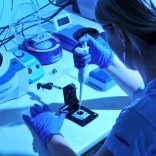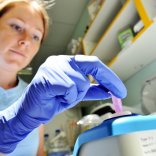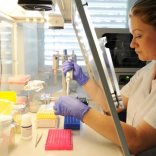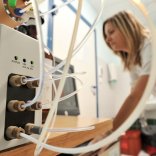Programme Description
The majority of human diseases has genetic background, or is caused by infectious agents. Moreover, the interaction of the human body with infection is also determined genetically, both from the host, as well as from the pathogen side. The main goal of this programme is:
1. to introduce modern approaches of the genome analysis (human, as well as microbial)
2. characterisation of cell behaviour on a molecular level, with emphasis on malignant transformation, and resistance to modern anti-cancer treatment,
3. analysis of mechanisms leading to disturbances of immune response.
The main diseases studied will be cancer; neuromuscular, neurodegenerative, and metabolic diseases; infectious diseases; and quantitative and qualitative immune defects (primary and secondary immune deficiencies, allergy, autoimmunity). These goals address the actual topics in current biomedical research and clinical medicine. The project aims to bring novel findings in pathogenesis of those diseases and elaborate experimental strategies for their treatments and prevention. New approaches for genome-wide analysis including comparative and functional genomics and proteomics will enable development of specific molecular diagnostics, and hopefully, development of predictive and personalized medicine, and perhaps gene therapy. These goals will be accomplished in close cooperation with lots of other programmes from the CEITEC project.
The introduction of high-capacity analysis of human and microbial genomes and the use of these technologies in medicine Analysis of transcriptomes and epigenetic changes.
Mapping of key genetic defects of tumour cells. Proteomic and genomic analysis of tumour cells with the aim of predicting a therapeutic response Analysis of cellular resistance to the modern anti-tumour therapy. Find suitable targets for gene therapy.
Molecular genetic diagnosis and characterization of neuromuscular, neurodegenerative and metabolic disorders.
Characterization of the genome of the, re-spreading sexually transmitted pathogens, the identification and characterization of genetic characteristics of microorganisms whole-genome scale.
Studying the mechanisms leading to defects in the immune response of the body, especially the quantitative and qualitative defects (primary and secondary deficiency, allergies, alergooncology, autoimmune disorders); analysis of genes involved in immune response.
Developing approaches to improve current therapeutic protocols, and experimental strategies that aim to produce new designs of therapeutic procedures.
Main Goals
1. Better division of patients into tumourous and hereditary diseases in prognostic groups, allowing medicine to be „made-to-measure“.
2. Development of new experimental strategies to treat cancer.
3. „In vitro“ testing of new medicines for the treatment of selected diseases.
4. Improving the treatment protocols for selected patients with cancer.
5. Identification of mutations responsible for disease emergence Search for interaction between genotype and phenotype.
6. Identification of new targets for diagnosis and treatment of new and re-spreading sexually transmitted pathogens.
7. Mapping the routes of transmission of nosocomial infections, which will help reduce the incidence of these infections v hospital equipment.
8. Epidemiological survey of sexually transmitted disease microorganisms to allow the introduction of more effective preventive measures.
9. Improving the diagnosis in order to better estimate the seriousness of the infection and any allergies and autoimmune complications.
10. Identification of micro-organisms associated with diseases with complex etiology, the introduction of a new treatment for these diseases.
11. Clarification immunodeficiency and pathogenesis of allergic diseases, new treatments and therapies.
Research Groups
- Šárka Pospíšilová Research Group (Medical Genomics)
- Ondřej Slabý Research Group (Molecular Oncology – Solid Cancer)
- Dalibor Blažek Research Group (Inherited Diseases – Transcriptional Regulation)
- Dmitriy Chudakov Research Group (Adaptive Immunity Group)
- ERA Chair - Mary O'Connell Research Group (RNA and Immunity)
- Marek Mráz Research Group (Microenvironment of Immune Cells)
- Michal Šmída Research Group (Functional Genomics)













